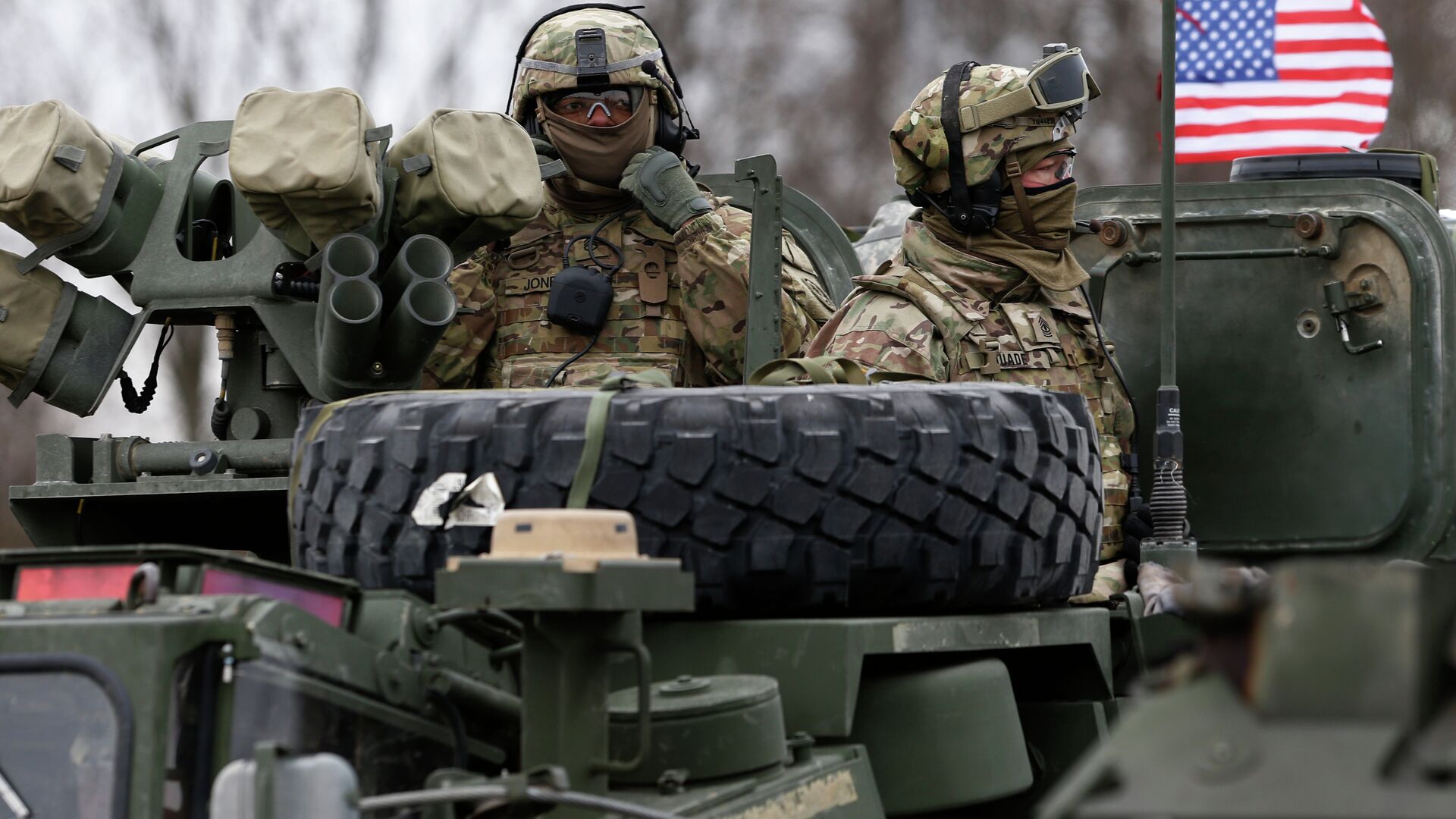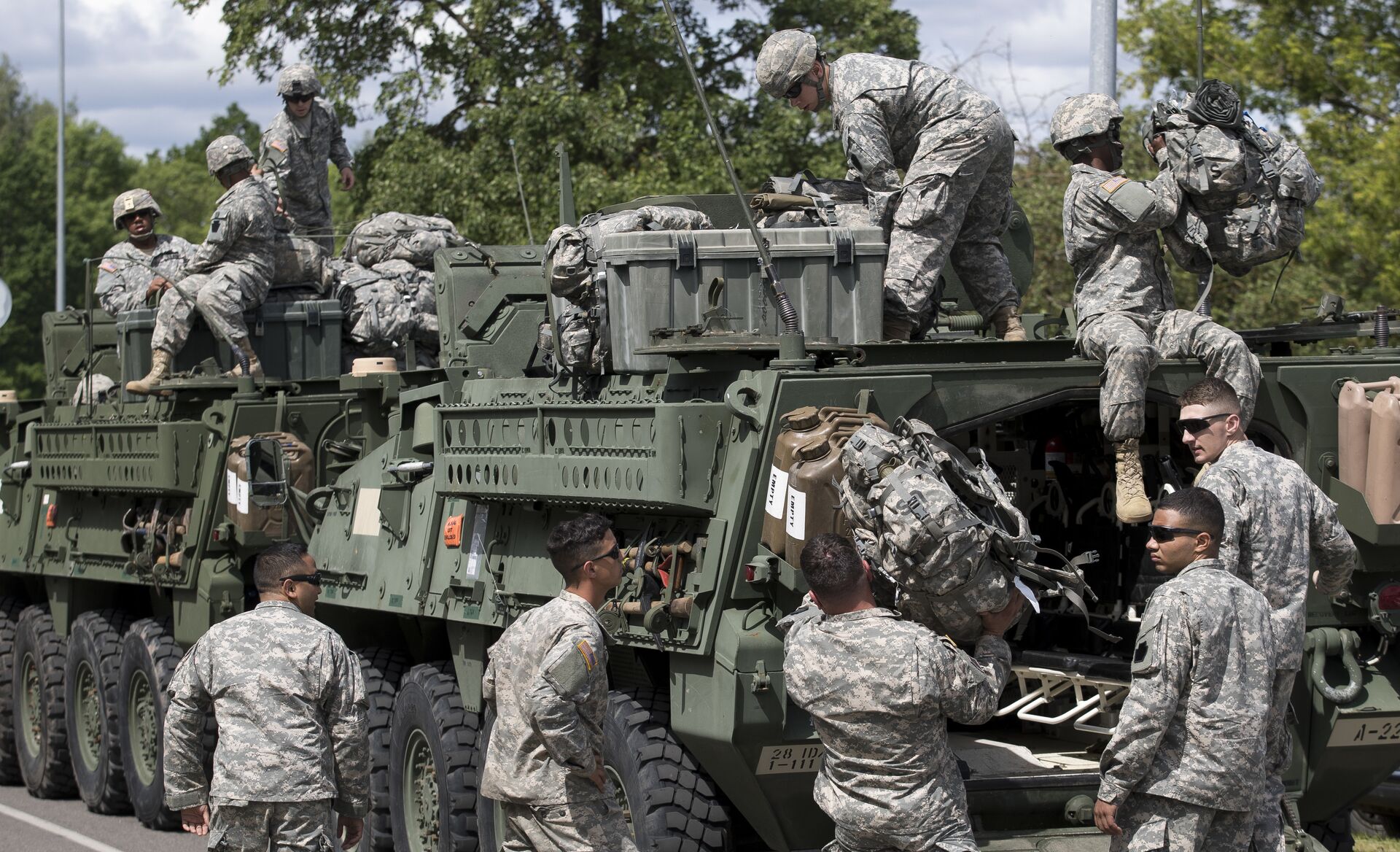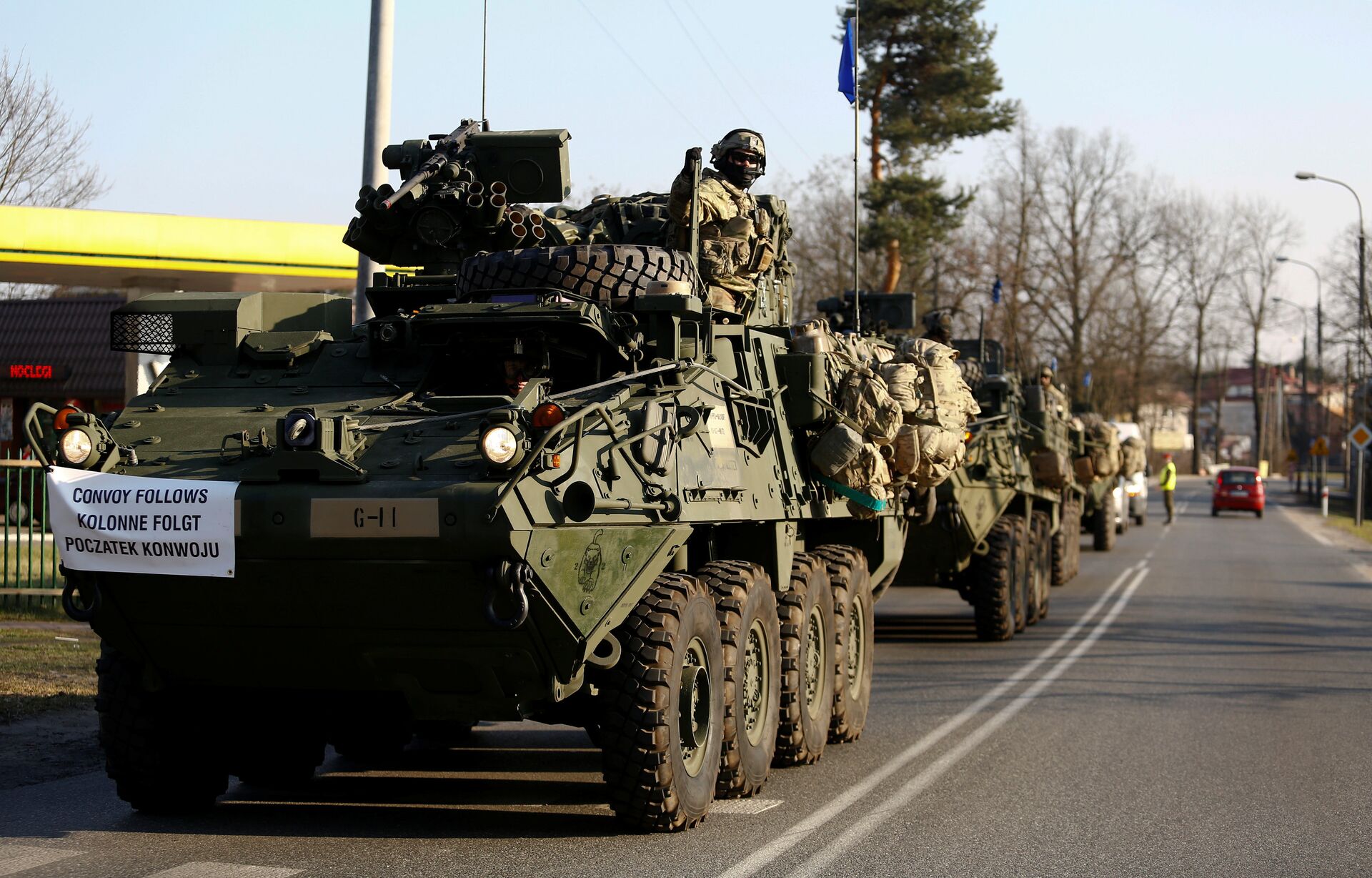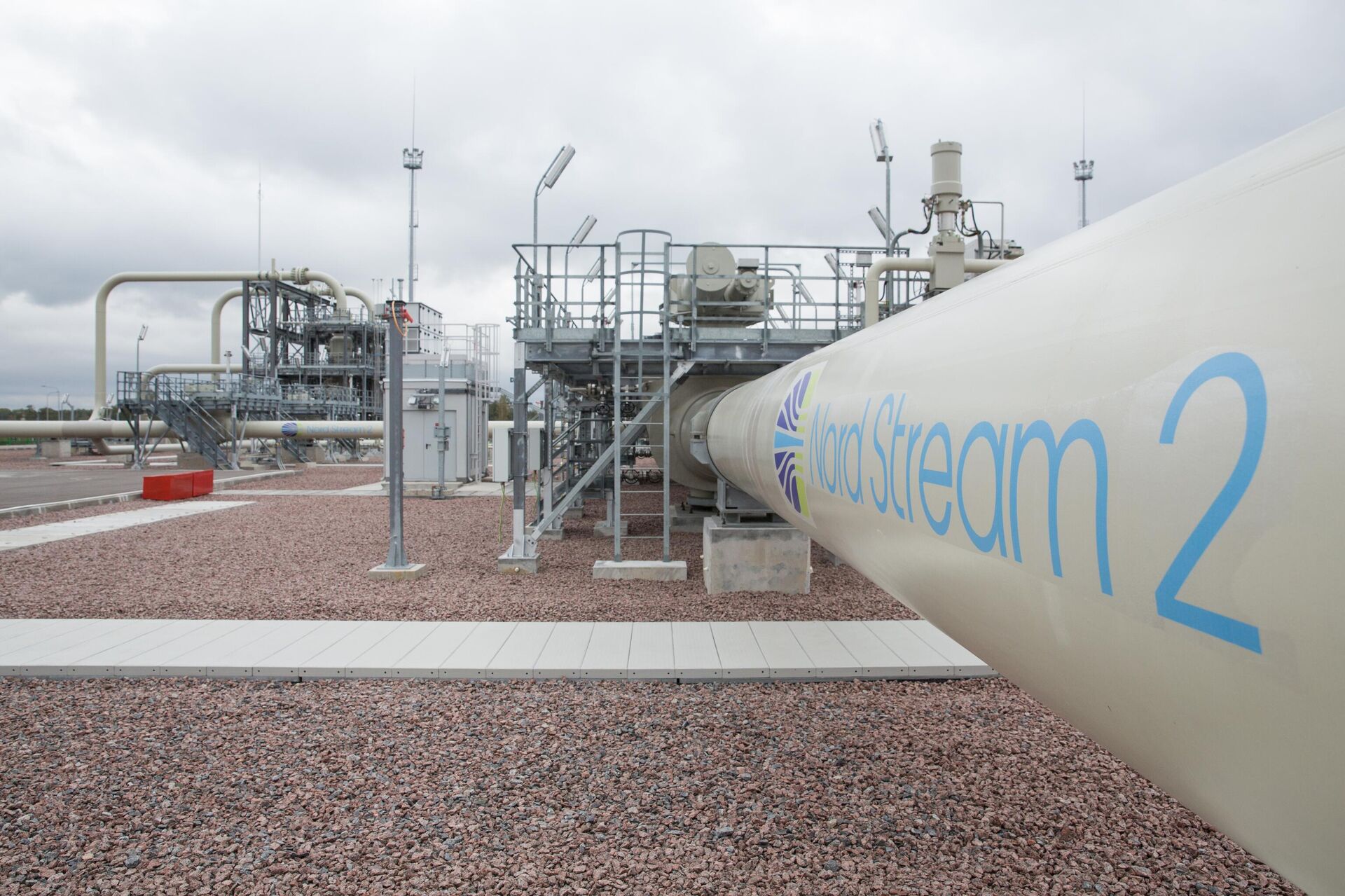Why More American Troops in Europe Will Make Old Continent Hostage to US Security Imperatives
19:44 GMT 30.03.2022 (Updated: 21:19 GMT 19.10.2022)

© AP Photo / Mindaugas Kulbis
Subscribe
The US may need more troops in Europe after Russia's special operation in Ukraine ends, Gen. Tod Wolters, commander of US European Command told American senators on 29 March, falling short of specifying whether he meant permanent basing. In recent months, US military forces have soared from roughly 60,000 to 102,000 in Europe.
"America’s presence in Europe is one of regional domination over Western Europe and encroachment and encirclement across Eastern Europe along Russia’s borders," says Brian Berletic, a geopolitical analyst and former US Marine. "It has always been a process of escalation, edging ever closer to a conflict with Russia either directly or, as we see unfolding in Ukraine right now, by proxy."
During a Senate Armed Services Committee Tuesday hearing, Gen. Tod Wolters was asked by Senator Roger Wicker (R-Miss.) whether the US should increase the number of troops permanently stationed in Europe, rather than the rotating forces. Wolters responded that his "suspicion is" that the US is going to still need more troops in the region "following the completion of the Ukraine-Russia scenario." The general added, however, that the Pentagon has to "examine the European contributions to make a smart decision about where to go in the future."
Still, Wolters' remarks left more questions than answers, as it remains unclear whether the additional US military forces would be deployed on a permanent basis.
"I think the reluctance came from two things," says Scott Ritter, US military analyst, former UN Weapons Inspector and WMD Whistleblower. "One - any permanent presence or bulked up permanent presence of American forces in Europe would require a nation to be willing to host these Americans, and that creates certain political problems for these nations. And two - the nation would have to be able to economically support this deployment."
Ritter explains that the US has made it clear that the day of it paying for the expense of sending and sustaining American troops overseas all by itself is over, and it's up to Europe now "to pay at least a significant part of the cost of hosting these troops." The general is aware of these financial and political unknowns, hence his hesitance, adds the military analyst.
Meanwhile, the number of US troops deployed across Europe has soared from 60,000 to about 102,000 since October 2021. For comparison's sake, NATO-allied European states hosted a total of 450,000 US military servicemen in 1957, during the Cold War era, according to Axios. Under the 1997 NATO-Russia Founding Act, the transatlantic bloc is prohibited from "permanent stationing of substantial combat forces" on its eastern flank.
"The purpose of these troops is to place constraints on Russia and its allies regarding options with which they can react to national security threats, provocations, and further encroachment," Berletic says. "Their presence across Europe is meant to extend and pin down a certain number of Russian forces to prevent Russia from using these forces against more immediate threats."

Members of the U.S. Army of the Pennsylvania National Guard unload equipment as they arrive at a airport in Vilnius, Lithuania, Sunday, June 5, 2016.
© AP Photo / Mindaugas Kulbis
NATO Doesn't Have the Right Mix of Forces in Europe
At the same time, one needs to understand that "the composition of the American forces in Europe right now do not represent the ideal composition of forces that would be needed if the purpose of these forces was to serve as a deterrent against any hypothetical Russian military aggression against NATO," argues Ritter.
"If the Russians decided to take their 200,000 troops and attack Poland, there's very little NATO could do to stop this," the military expert says. "So the purpose behind the bulking up of NATO military with American forces would be to create a military force able to stand toe-to-toe with the Russian army and from NATO's perspective, to win in any potential conflict with the Russian army. That doesn't exist today. This would be to create that capability."
In order to effectively deter Russia, the US would have to deploy heavy armored brigades in Europe and keep them permanently there, according to the military analyst. However, it would be expensive for the US to provide these units, and it would be costly for any EU nation to host them, he explains.
Furthermore, a meaningful deterrent value would require not one brigade, not two brigades, but probably nine brigades, according to Ritter. "That's beyond the capacity of the US Army today to provide," he says. "So we would have to form new armored brigades which are a very expensive proposition."

A convoy of U.S. troops, a part of NATO's reinforcement of its eastern flank, who are on their way from Germany to Orzysz in northeast Poland, drive through Sulejowek towards a military base in Wesola, near Warsaw, Poland, March 28, 2017
© REUTERS / Kacper Pempel
Europe's Choice
The US' apparent plan to beef up its military presence in Europe is caused by the fact that Washington's role in Europe "has always been one of domination over its so-called 'allies' and of ensuring conflict rather than cooperation between Europe and Russia," according to Brian Berletic.
"The US has created and maintains a strategy of military tension along with 'soft power' tools including political interference and media control to ensure Europe, no matter how much against its own best interests it may be, maintains a posture of growing hostility toward Russia and isolation from it," says the former US Marine.
According to Berletic, if there were no US military presence and no economic or political coercion used by the US, Nord Stream 2 would already be operational, with Europeans "enjoying cheap, plentiful, and dependable hydrocarbons from Russia." Instead, the EU has recently been thrown under the bus by the US and is now "risking socio-economic ruination," the geopolitical analyst points out.

Nord Stream 2
© Photo : Nord Stream 2 / Nikolai Ryutin
Still, EU member states also bear responsibility for the current state of affairs, according to Scott Ritter. He highlights that Europe has long been excessively dependent on the US in terms of security. Ritter outlines two solutions for Europe which would have ensured its strategic autonomy:
· to work with Russia to redefine a European security framework that de-emphasises the possibility of armed conflict;
· if security cooperation with Moscow wasn't something that was politically acceptable for Europe, to build up its own inherent military capability to "deter Russia."
As the world evolves away from a West-centered unipolar system and embraces multi-polarity, it would be more reasonable for Europe to find a way to economically and politically coexist with Russia, according to the military analyst.
"What's happening right now is that Europe is once again relying on the United States to provide this [security] capability, and this means that Europe will be held hostage to the national security imperatives of the United States, not the national security imperatives of Europe," Ritter warns. "If it allows permanent American forces to be stationed in Europe again, similar to what existed back in the 1980s, then Europe is basically surrendering its sovereignty and this is a very bad situation for Europe."
This scenario is fraught with further risks, as the Biden administration appears to be interested in prolonging the conflict in Ukraine for as long as possible, thus deepening the rift between Europe and Russia, argues Brian Berletic. US officials' apparent plans to turn Ukraine into Afghanistan 2.0 and amass American troops in Europe could ruin any prospect of healthy and mutually beneficial bilateral relations between Russia and the Old Continent, according to the former US Marine.



